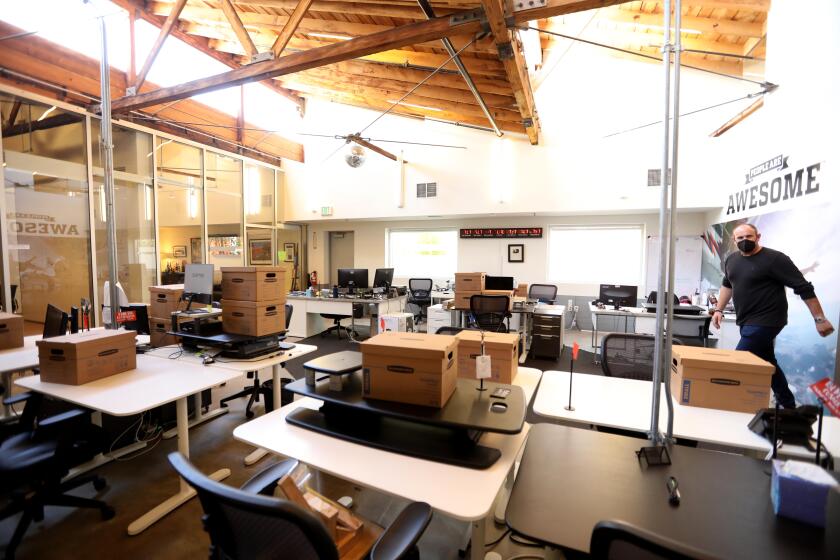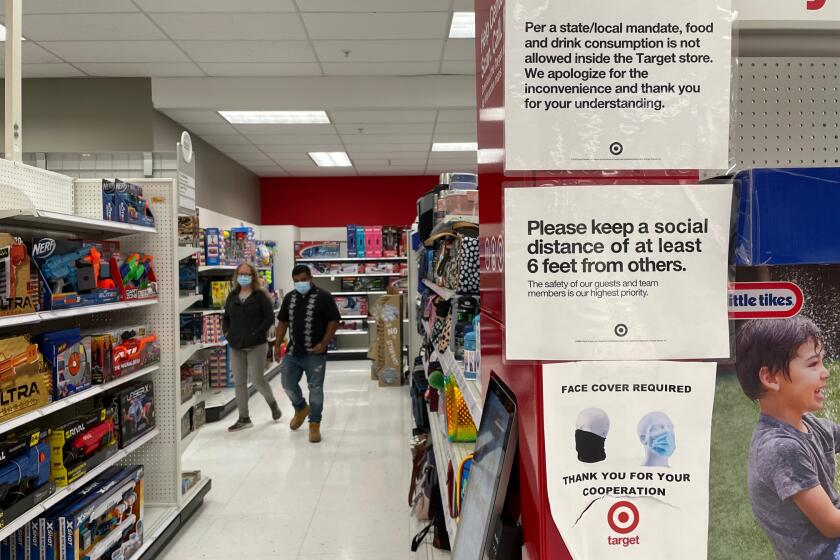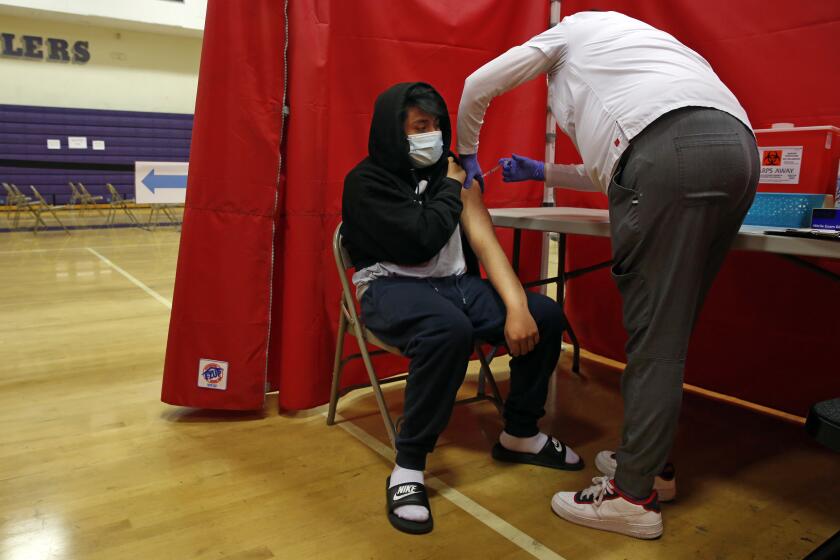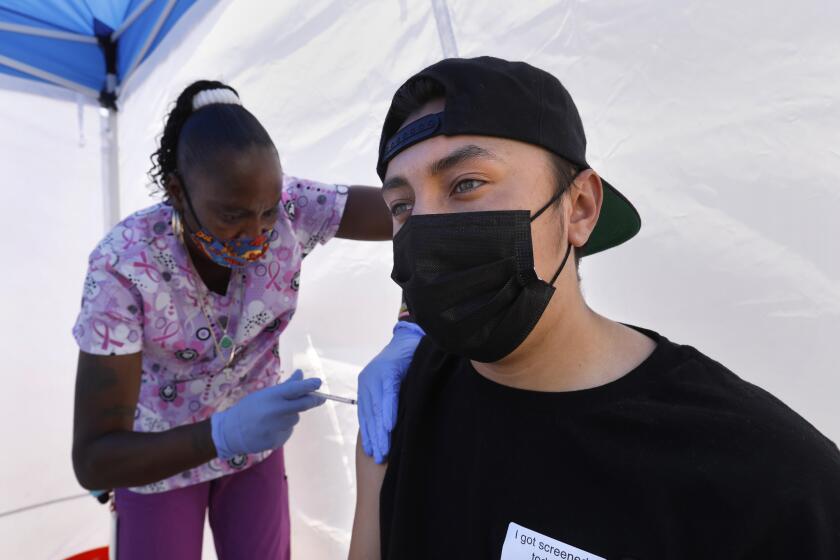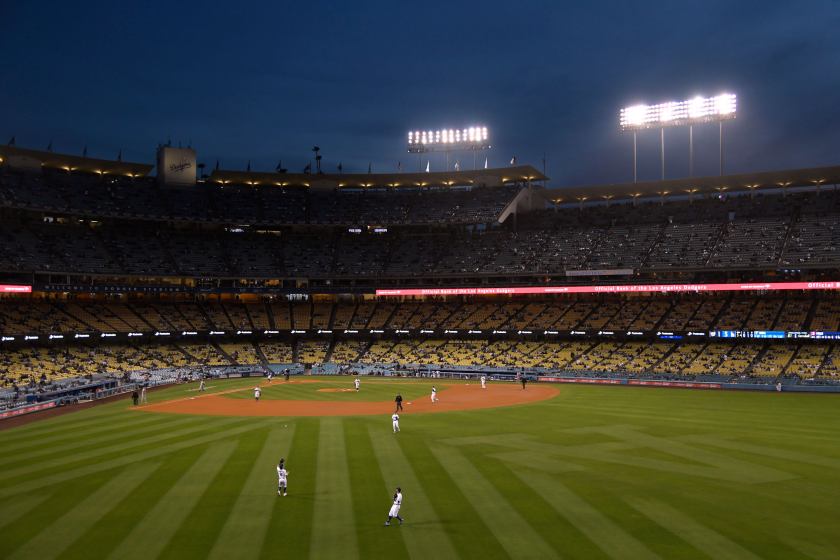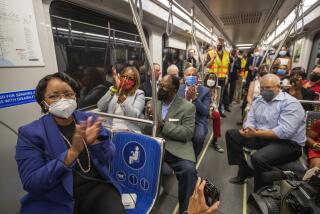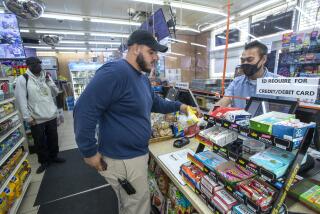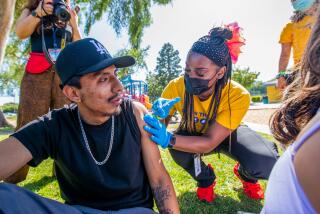How life in California will change with June 15 reopening
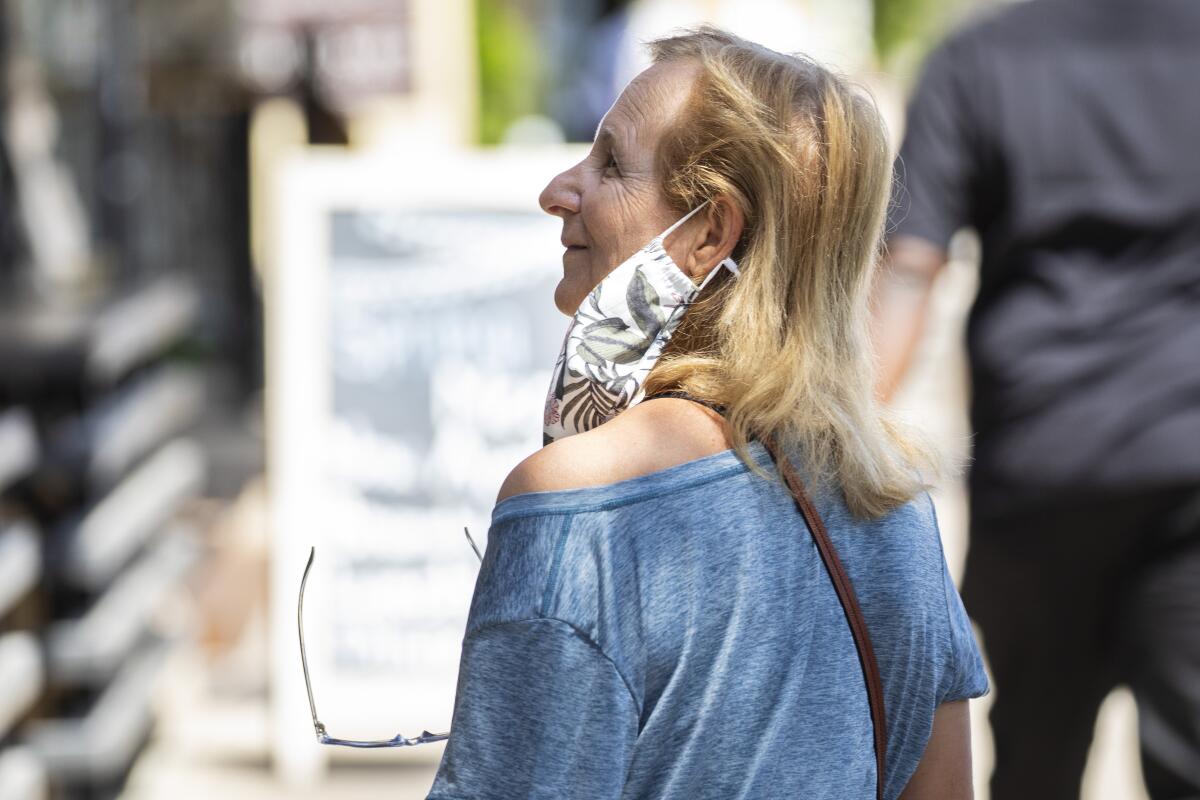
- Share via
California is moving forward with a dramatic reopening of the economy on June 15 that will remove nearly all of the restrictions residents have been living with for more than a year.
The move comes as daily coronavirus cases have plummeted and vaccinations have increased in the state.
What are the key points?
Under new guidance released Friday, here’s what the lay of the land will be, come June 15:
- No more physical distancing requirements for attendees, customers and guests at almost all businesses and other institutions.
- No more coronavirus-related capacity limitations.
- California will generally align with mask guidance from the Centers for Disease Control and Prevention.
- Restrictions at restaurants, open bars and buffets will go away.
- Organizers of indoor events with more than 5,000 people, such as a basketball game, will be required to verify that attendees are either fully vaccinated or have tested negative within 72 hours of the event’s start time.
- Organizers of outdoor events with more than 10,000 attendees will be recommended, but not required, to do the same, though venues in those instances will have the option of allowing unvaccinated and untested attendees, provided those people wear a mask at all times.
- The requirement/recommendation for testing and vaccine verification will remain in effect through Oct. 1, though state officials will assess conditions prior to that to determine how, or whether, to update or extend that guidance.
- California’s travel advisory will be loosened. Currently, nonessential unvaccinated travelers returning or entering California are still recommended to get tested for the virus before travel and after arrival. They’re also asked to quarantine themselves for seven days, even if they test negative. By June 15, the state will likely loosen quarantine recommendations for unvaccinated people who are traveling within the U.S.
Come June 15, businesses in California can open their doors without COVID-19 constraints and fully vaccinated people can go mask-free in most situations.
How does this move match up with federal guidance?
California will generally accept the CDC’s recommendations on masking, starting June 15. The California Department of Public Health may offer more detailed guidance for specific settings, but it will be generally aligned with the CDC.
Here are the key points of what California can probably expect starting June 15, although details will come out later:
- Fully vaccinated people by June 15 are expected to no longer need to wear masks in almost all settings, according to expected state rules, although they will still need to wear masks in airports, airplanes, buses, trains and transit stations. Currently, people who are fully vaccinated are still required by the state to wear masks in most indoor public settings and only in outdoor settings that are crowded, such as at live performances, parades, fairs, festivals, sports events or other similar settings.
- Unvaccinated or partially vaccinated people will still be required to wear masks in almost all settings outside the home where they’re in close contact with other people. One exception includes if only members of one unvaccinated household are present and are attending a small outdoor or indoor gathering where everyone else is vaccinated.
For now, California workers must continue to wear masks and practice physical distancing — either in a room or outside.
What about workplaces?
A California occupational safety and health standards board will meet June 3 to review new loosened standards that will be made public no later than May 28. If approved, looser rules would go into effect June 15.
For now, workers must continue to wear masks and practice physical distancing unless they’re alone — either in a room or outside. Workers can remove masks when eating or drinking, but must physically distance themselves from others.
Why are state officials making this move?
All signs suggest that California is clearly headed out of the pandemic as long as vaccination rates remain steady.
COVID-19 hospitalizations are now at their lowest level since the first few weeks of the pandemic. The per capita average daily rate of coronavirus cases in California is among the lowest in the nation. Statewide, 52% of Californians have received at least one dose of vaccine.
The supply of vaccine is abundant.
Getting COVID-19 after being vaccinated exceedingly rare in L.A. County
What do officials still need to do before June 15?
Officials still need to make progress in getting vaccines into the arms of Californians who have been disproportionately less likely to get a shot.
Statewide, only about 35% of Latino and 36% of Black residents are at least partially vaccinated, while 52% of white, 48% of Native American and 62% of Asian American residents are at least partially vaccinated.
Some people say they still haven’t gotten vaccinated because they’re worried or unable to take time off work if they suffer from side effects, such as a sore arm, fever and fatigue that might require a vaccinated person to stay home for a day after getting the shot. Others lack transportation to vaccine sites and are more likely to get the shot if clinics are offered close by and don’t require an appointment.
Vaccination rates are especially low among Latino men. Misinformation, fear and busy schedules all play a role, experts say.
What about vaccine passports?
A general centralized state “vaccine passport” system, which would provide regularly accessible records of immunization status, remains off the table at the moment, said Dr. Mark Ghaly, the California health and human services secretary. That’s not to say that businesses/venues can’t — or won’t — require some kind of verification, he added, but “that isn’t something that’s going to be driven from the state necessarily.”
“We know that technology is being privately developed, we understand that certain business sectors, certain specific operators, may have some requirements on a vaccine passport and our intention is to provide some guidance, some guidelines, so that those who do implement it do it in a way with ultimate integrity, responsibility, in a way that doesn’t discriminate,” Ghaly said.
Will vaccinated people be at risk if unvaccinated people violate the rules and stop wearing masks?
There’s increasing evidence that fully vaccinated people are extraordinarily well-protected against getting COVID-19.
A recent L.A. County analysis found that of the 3.3 million county residents fully vaccinated as of May 7, only 933 — or 0.03% — later tested positive for the coronavirus, including people who showed no symptoms but were tested anyway because of workplace requirements.
Furthermore, only 71 fully vaccinated residents, or 0.002%, were later hospitalized with so-called breakthrough infections. Twelve residents, or 0.00036% of fully vaccinated people, died.
Of the 12 who died, four had severely weakened immune systems, according to the analysis. In such people, vaccinations may not produce the kind of immune system response needed to adequately protect against COVID-19.
As a result, some experts say people with compromised immune systems should speak with their doctor before deciding to take off their mask.
What about the variants?
There’s increasing evidence that available vaccines are effective against the known variants.
Will unvaccinated people be at greater risk if other unvaccinated people break the rules and stop wearing masks?
That is a concern, especially for people who work in settings where they’re around a lot of people.
That’s why now is the time for anyone who has been putting off getting vaccinated to do so, Ghaly said.
“Today, it gives them a chance to say: This is the right time, let me get vaccinated,” he said.
The five major league teams in California will be able to play to capacity crowds beginning June 15 under reopening plans announced Friday.
Should we expect greater virus transmission once mask mandates are eased?
There will probably be some increase in coronavirus transmission among unvaccinated people once mask mandates are lifted, but Ghaly said it probably won’t significantly affect hospitals because there are so many people who have either been vaccinated or have prior immunity to the coronavirus because they’ve survived an infection.
(People who have survived COVID-19 should still get the vaccination, experts say, because the vaccine provides better immunity than simply surviving a natural infection.)
Can you still wear a mask if you want?
Yes. In fact, Cal/OSHA rules ban companies from forcing workers to take off a mask if they choose to wear one.
More to Read
Sign up for Essential California
The most important California stories and recommendations in your inbox every morning.
You may occasionally receive promotional content from the Los Angeles Times.
